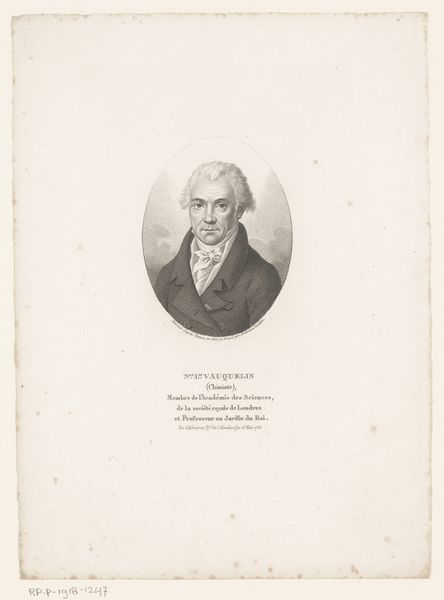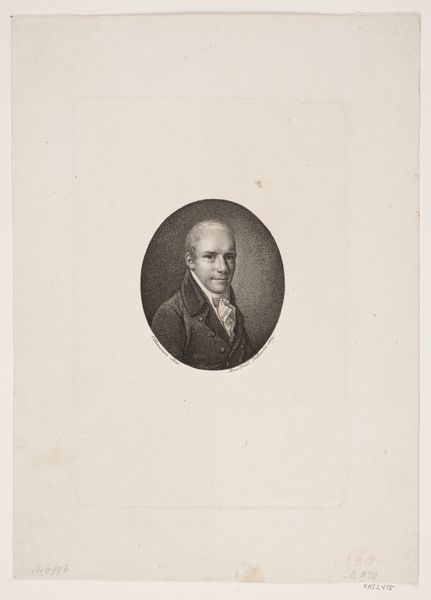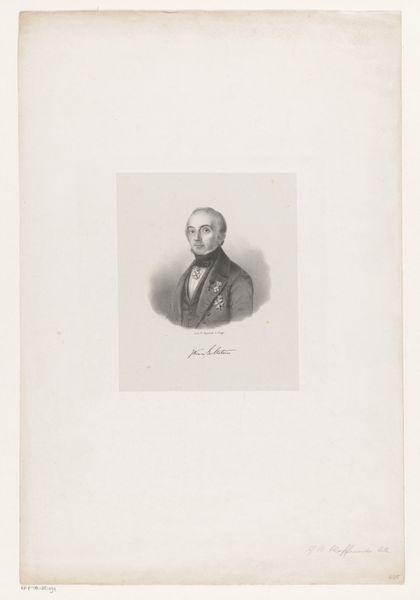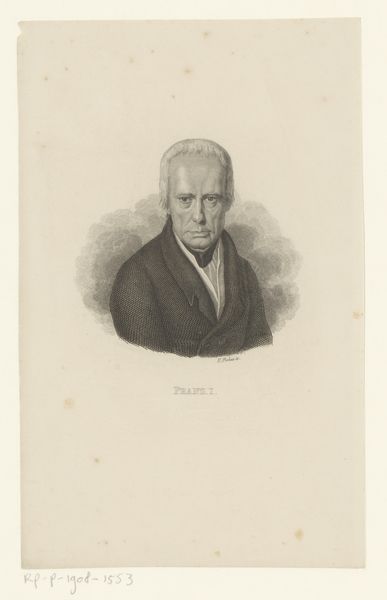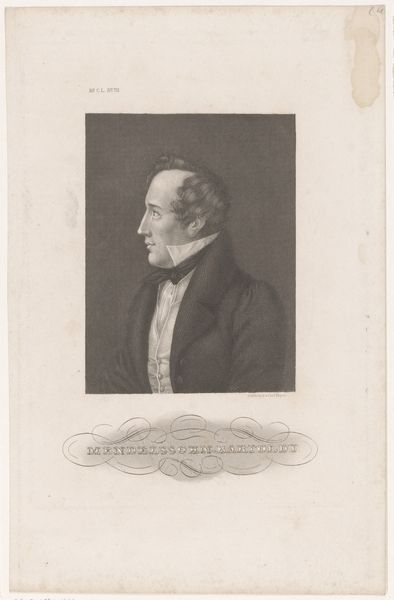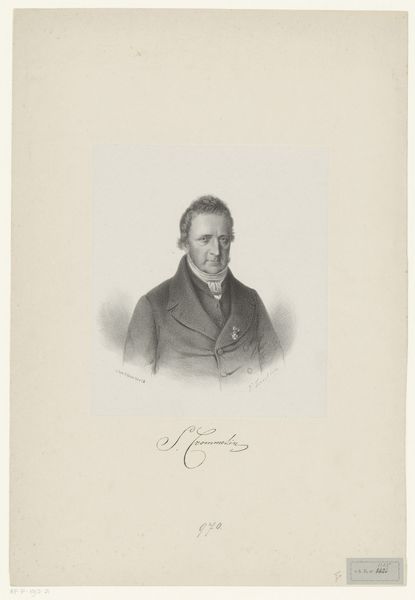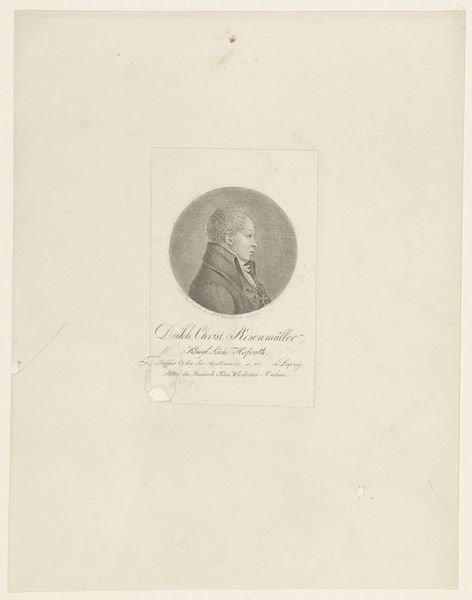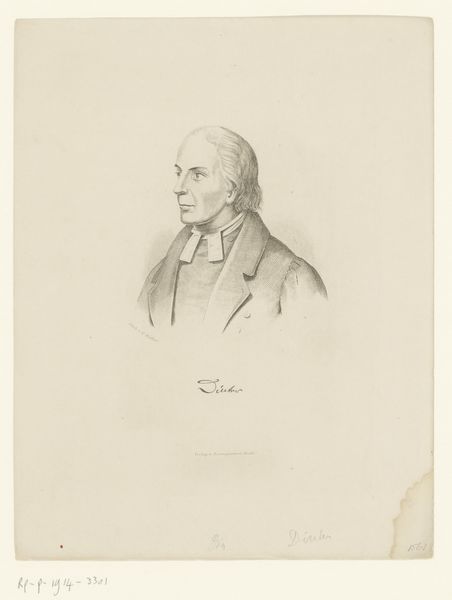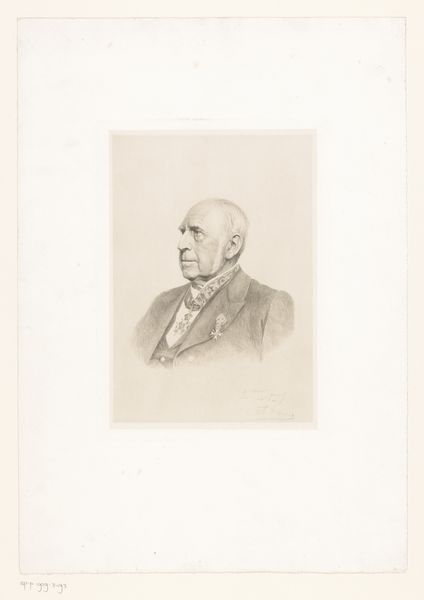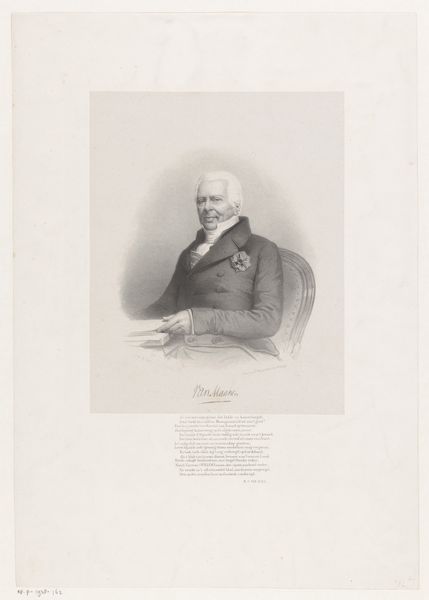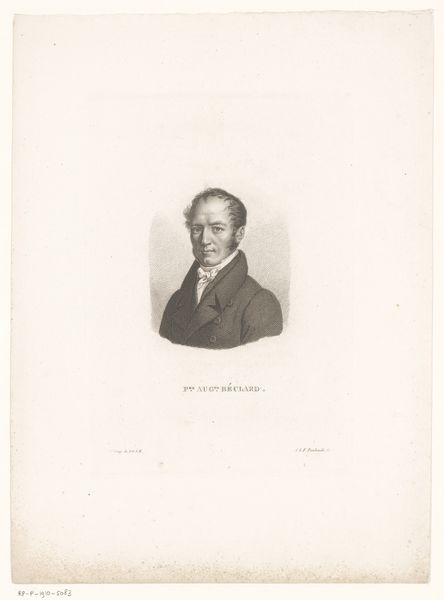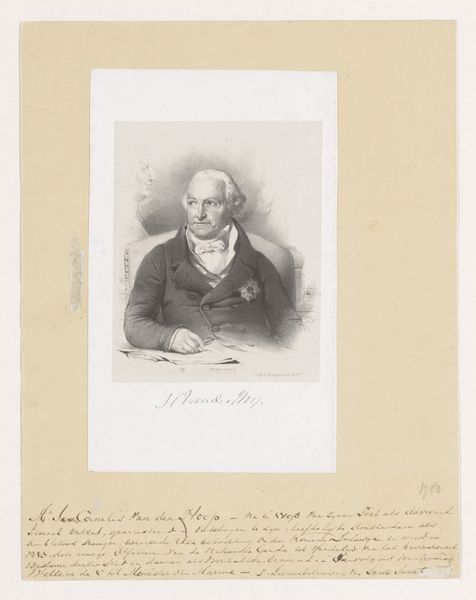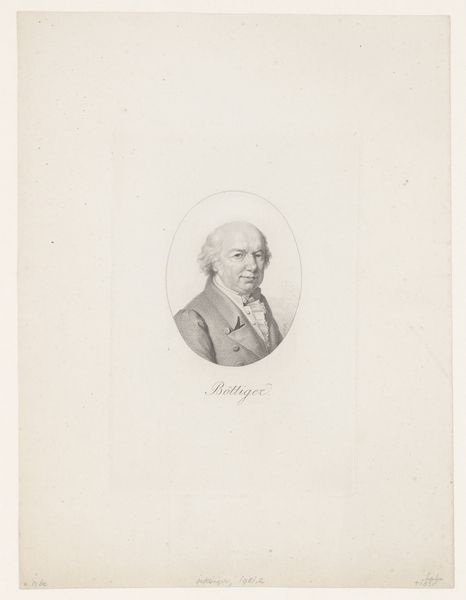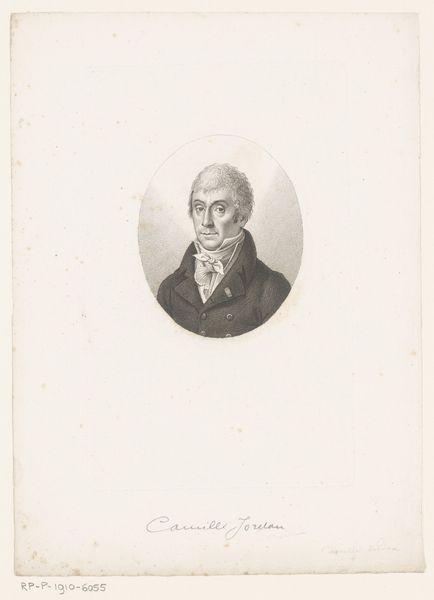
drawing, graphite
#
portrait
#
drawing
#
pencil drawing
#
graphite
#
portrait drawing
#
realism
Dimensions: height 594 mm, width 410 mm
Copyright: Rijks Museum: Open Domain
Editor: This is a graphite drawing by W. Schubert, titled "Portret van Carl Rahlenbeck," created sometime between 1820 and 1860. The detail is incredible for a pencil drawing. I'm struck by the balance between light and shadow, how it creates such a defined form. What's your take on it? Curator: Indeed, the tonal range is quite impressive, wouldn't you agree? Note how the artist models the face through subtle gradations of graphite, building form and volume. Observe, too, the linearity. Is it used primarily to define the contours, or does it contribute to a sense of depth and texture? Editor: I see what you mean! It’s both, really. The lines around the jaw are definitely about contour, but the hatching on his jacket seems to suggest the texture of the fabric. Do you think the formal qualities of this portrait reveal anything beyond the surface? Curator: Certainly. The interplay of light and dark creates a visual drama, yes? The meticulous detail reflects a concern for precision and objective representation, qualities that can tell us much about the prevailing artistic values. Consider also the format, scale and use of a very limited palette: What message do you think those aesthetic considerations try to convey? Editor: Hmm. Maybe something about the subject's status, or the importance of realism? I guess focusing on those elements lets the viewer really *see* the person portrayed, rather than get distracted by flashy colors or settings. Curator: Precisely. The limitations the artist embraced force our attention onto the rendering of form and character, directing our gaze towards a particular reading of the sitter. A successful composition for Schubert, don’t you think? Editor: I agree! Looking at it through this formalist lens has really given me a new appreciation for the choices the artist made, and how those choices shape our understanding of the subject.
Comments
No comments
Be the first to comment and join the conversation on the ultimate creative platform.
